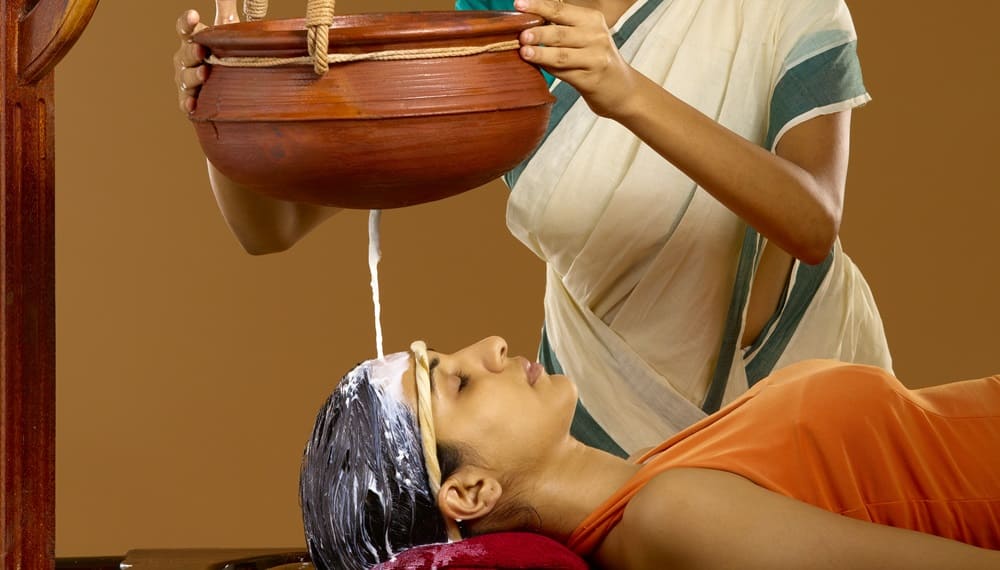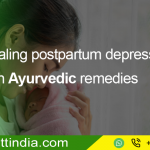In today’s fast-paced world, anxiety and depression have become prevalent issues affecting many people. Traditional medicine often focuses on pharmaceuticals, but Ayurvedic approaches offer natural solutions. Ayurveda, a holistic healing system originating from India, emphasizes balance in the mind, body, and spirit. This article explores how Ayurvedic principles can help manage and overcome anxiety and depression.
Understanding Ayurveda
Ayurveda is based on the concept that health is achieved through a balance of three fundamental energies or doshas: Vata, Pitta, and Kapha. Each dosha represents different elements and bodily functions. Vata is associated with air and space, Pitta with fire and water, and Kapha with earth and water. Imbalances in these doshas can lead to physical and mental health issues, including anxiety and depression.
Identifying Imbalances
In Ayurveda, anxiety and depression are often linked to imbalances in the Vata dosha. Vata governs movement and is responsible for mental processes, such as thinking and emotional stability. When Vata is out of balance, it can lead to symptoms of anxiety and depression, such as restlessness, insomnia, and mood swings.
Pitta imbalances, characterized by excessive heat and irritability, can also contribute to these conditions. On the other hand, an excess of Kapha, leading to lethargy and emotional stagnation, can exacerbate depressive symptoms.
Ayurvedic Remedies for Anxiety and Depression
Diet and Nutrition
Diet plays a crucial role in Ayurvedic treatment. A balanced diet tailored to your dosha can help restore harmony. For those with a Vata imbalance, warm, moist, and grounding foods are recommended. These include soups, stews, and foods with healthy fats like avocados and nuts. Reducing caffeine and sugar is also beneficial.
For Pitta imbalances, cooling foods such as cucumber, mint, and coconut can help. Avoiding spicy, acidic, and overly stimulating foods is advised.
Kapha imbalances benefit from a lighter, more stimulating diet. Incorporate foods with a bitter, astringent, and pungent taste, such as leafy greens, spices like ginger, and fresh fruits.
Herbal Remedies
Ayurvedic herbs are used to balance doshas and alleviate symptoms. Some effective herbs for managing anxiety and depression include:
- Ashwagandha: Known for its adaptogenic properties, ashwagandha helps the body manage stress and balance hormones.
- Brahmi: This herb supports mental clarity and emotional stability, making it useful for anxiety and depression.
- Jatamansi: Jatamansi is known for its calming effects on the mind and can help alleviate symptoms of anxiety and depression.
- Turmeric: Its anti-inflammatory properties support overall mental health and can help balance mood.
These herbs are often taken in the form of teas, capsules, or tinctures. Always consult with an Ayurvedic practitioner before starting any herbal regimen.
Lifestyle Practices
Daily routines and lifestyle changes are central to Ayurveda. Establishing a balanced daily routine can significantly impact mental well-being:
- Regular Sleep: Aim for a consistent sleep schedule. Going to bed and waking up at the same time each day helps regulate the mind and body.
- Exercise: Gentle exercises like yoga or walking help balance Vata and improve mood. Yoga poses such as Child’s Pose, Legs-Up-The-Wall, and Savasana can be particularly calming.
- Meditation: Regular meditation practice helps calm the mind and reduce stress. Techniques like mindfulness meditation, mantra meditation, and guided imagery are beneficial.
- Breathing Exercises: Pranayama, or breath control exercises, can help reduce anxiety and depression. Techniques like Anulom Vilom (alternate nostril breathing) and Bhramari (humming bee breath) are effective.
Panchakarma
Panchakarma is a detoxification process in Ayurveda that helps remove toxins from the body and restore balance. It includes treatments such as:
- Abhyanga: A full-body oil massage that calms the nervous system and promotes relaxation.
- Shirodhara: A treatment where warm oil is poured over the forehead, which helps soothe the mind and reduce anxiety.
- Nasya: The application of medicated oil or herbal preparations into the nasal passages to clear toxins and improve mental clarity.
Panchakarma should be done under the guidance of a qualified Ayurvedic practitioner to ensure it’s appropriate for your condition.
Mind-Body Connection
Ayurveda emphasizes the connection between the mind and body. Practicing self-care and nurturing your emotional health are important aspects of overcoming anxiety and depression. Engaging in activities that bring joy, fostering supportive relationships, and finding purpose in daily life can enhance mental well-being.

Call +91 9072344343 for Ayurveda Treatment in Kerala
Ayurveda offers a holistic approach to managing anxiety and depression by focusing on balancing the doshas, improving diet, using herbal remedies, adopting a balanced lifestyle, and considering detoxification practices. By integrating these principles into your daily routine, you can support your mental health naturally and effectively. Always consult with a Ayurvedic practitioner to tailor these approaches to your individual needs and ensure a safe and effective treatment plan.
With consistent practice and a holistic approach, you can achieve a more balanced and peaceful state of mind. Embrace the wisdom of Ayurveda and take proactive steps towards overcoming anxiety and depression naturally.








